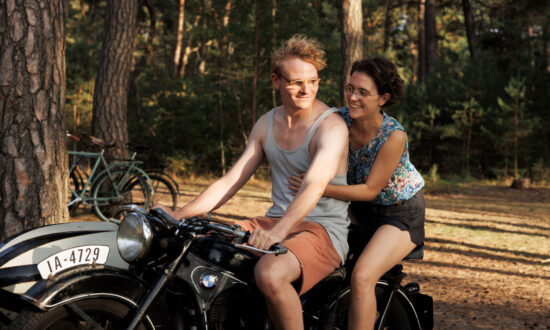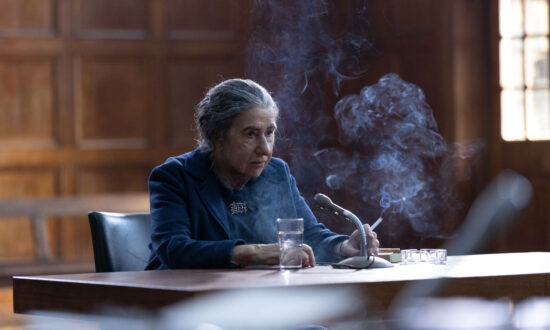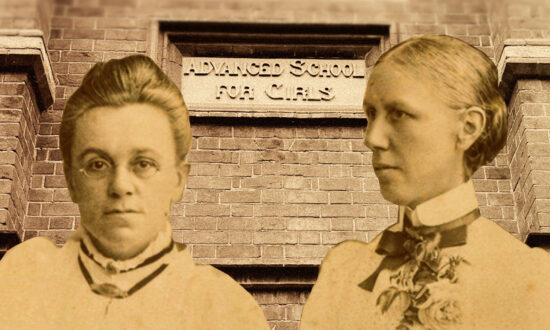When you think about the relationship that Australia’s First Nations people have had with the police force over the years, the word positive doesn’t usually spring to mind.
But very encouraging progress is being made to change that, as shown in series 2 of Our Law, premiering on SBS and NITV on May 9 at 8.30pm.
This insightful and entertaining series shows a very human side to how First Nations police officers are working hard to break down barriers, with rare access captured of police training and squad-car conversations that reveal important behind-the-scenes details.
Originating in an award-winning short documentary from Western Australian producers Taryne Laffar of PiNK PEPPER and Sam Bodhi of Periscope Pictures, the series continues from the documentary’s key question: “Could First Nations police officers be the ultimate front-line in changing police culture and rebuilding trust with Aboriginal peoples?”
The results in Series 1 and now 2 of Our Law show that the answer seems to be a big “yes”.
WA officer Sergeant Alan Kickett (Wodjuk Noongar) tells us that many police officers haven’t met an Indigenous person in their life, apart from on the job. Hopefully, the presence of people in the police force reflecting those they serve in the community will go a long way to righting the wrongs that have resulted in mistrust, oppression and trauma for Indigenous people.
Our Law Series 2, again narrated by Deborah Mailman and directed by Perun Bonser, introduces new characters as well as picking up with a couple from Series 1, such as Western Australian Leroy Rundle (of the Wongatha language people).
In episode 1, Leroy’s finishing up the cadet program and is going out on his own as a police recruit. He misses his friend and fellow cadet Ace Kiernan (Noongar and Ngadju people), but is eager to start policing work. It’s heartening to see how thrilled he is, towards the end of the first episode, to receive his uniform and get to work.
Like his friend, Ace admits he’s a bit lonely at first when he’s assigned as a custody officer to the Perth Watch House – a place renowned for housing violent offenders.
Ace’s cultural background stands him in good stead for dealing with Aboriginal detainees, but the volatile situation can be very challenging. He also carries the weight of responsibility with the knowledge that Indigenous people are more than six times more likely to die in police custody than others.
Another confronting situation for Ace is during a cultural awareness training talk given by Aunty Trish Hill-Wall (Wandandi) about how historical context impacts Aboriginal communities in regard to their relationship with police.
The young police officers from varying backgrounds pass around a photo of a group of Aboriginal men chained by the neck to each other, with a white police officer overseeing them, and it’s moving to see just how profoundly it touches Ace.
The purpose of such exercises is to instil an understanding, particularly in non-Indigenous officers, about intergenerational trauma. As Aunty Trish says in the show, it’s not as easy as “getting over it” because of the sheer brutality that was par for the course.
Sometimes policing isn’t about arresting perpetrators but more about assisting in health crises, both physical and mental.
Over in Queensland in Caboolture, Constable Jarwin Blackman (Goreng Goreng/Wakka Wakka) is in the squad car with his colleague when they’re called to assist with an intoxicated man on the train tracks. With a good outcome to the incident, Jarwin says that it’s rewarding to have helped save a life.
Then there’s Senior Constable Patricia Pedro, (Bindal and Wulgurukaba), who works at Thursday Island Police Station. She’s determined to change views of the community, saying that growing up she always saw police officers being aggressive towards her people. A call for help comes through and she boards a police boat to take a paramedic to assist a man with chest pains on another island.

Get InReview in your inbox – free each Saturday. Local arts and culture – covered.
Thanks for signing up to the InReview newsletter.
Other police officers will be followed throughout the series, and we’re also privy to the welcome smoking ceremony of a conference in the Aboriginal traditional meeting place of Goulburn.
The conference is for ACLOs (Aboriginal Community Liaison Officers) at the New South Wales Policy Academy, and we directly hear from some of these First Nations women and men who work hard to try to build better relations between police and their communities.
It’s easy to become invested in all of these people as they strive hard for positive outcomes, and the series deserves a big and appreciative audience who, once hooked, will eagerly follow the subjects’ personal and professional journeys.
Our Law Series 2 premieres with a double episode on May 9 at 8.30pm on NITV and SBS, then airs weekly. Stream Our Law (all episodes) for free on SBS on Demand from May 9.
Support local arts journalism
Your support will help us continue the important work of InReview in publishing free professional journalism that celebrates, interrogates and amplifies arts and culture in South Australia.
Donate Here




